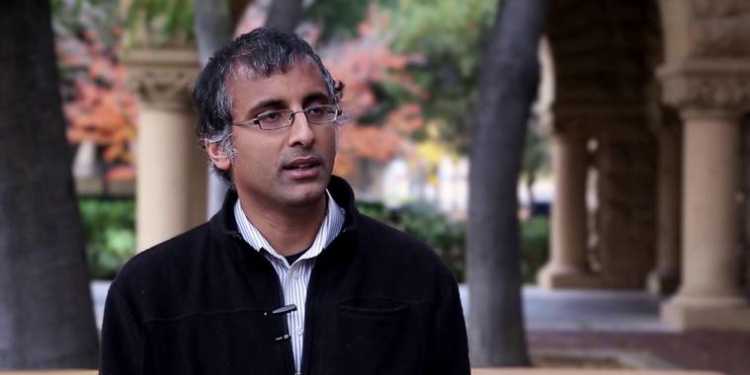Akshay Venkatesh, a renowned Indian origin mathematician who is currently teaching at the Stanford University has won the prestigious Fields Medal. The Fields Medal, also known as the Nobel Prize for mathematics, was bestowed on Akshay Venkatesh for his profound contribution to an exceptionally broad range of subjects in maths. The medal was awarded to Akshay Venkatesh, aged 36 on Thursday at the International Congress of Mathematicians in Rio de Janeiro. He was awarded the prize along with three other mathematicians, namely Caucher Birkar, Peter Scholze and Alessio Figalli. Birkar is a professor at the Cambridge University and hails from an Iranian Kurdish family, Scholze who is of German descent teaches at the University of Bonn while Figalli is an Italian mathematician and is employed at ETH Zurich. All the four winners received a solid gold medal and a cash prize of 15,000 Canadian dollars (approximately INR 7.5 lakhs). This is not the first recognition for Akshay, who has already been awarded with the Ostrowski Prize, the Infosys Prize, the Salem Prize and the Sastra Ramanujan Prize.
Akshay, after receiving the award was quoted as saying,“A lot of the time when you do math, you’re stuck, but at the same time there are all these moments where you feel privileged that you get to work with it,” He went on to add, “You have this sensation of transcendence, you feel like you’ve been part of something really meaningful.”
Akshay Venkatesh moved to Perth, Australia at the age of 2 with his family and studied there in his formative years. A regular participant in physics and maths Olympiads he won medals in the two subjects at ages 11 and 12, respectively. After finishing high school at the age of 13, he went to study at the University of Western Australia from where he graduated with first class honors in mathematics at the age of 16 in 1997. He had already earned his PhD by the age of 20 and went on to hold a post-doctoral position at MIT. Next in line was a Clay Research Fellowship followed by his stint as a professor at the Stanford University where he is currently employed. His work in mathematics deals with number theory, arithmetic geometry, topology, automorphic forms and ergodic theory. The Fields Medal was awarded to him for his use of dynamics theory, which studies the equations of moving objects to solve problems in number theory.
The Fields Medal are awarded every four years to the most promising mathematicians of the world who are under the age of 40. The prize was inaugurated in 1932 at the behest of Canadian mathematician John Charles Fields, after whom the medal is named. The medal is awarded to at least two and preferably four people in the International Congress of Mathematicians which is held every four years.
























